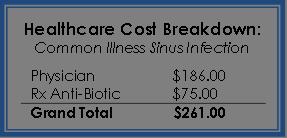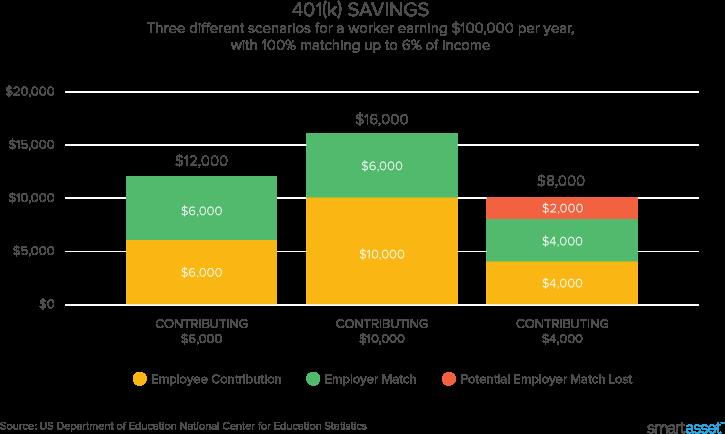A job hunt is an exciting time for any professional, but finding an ideal fit can be tricky. Assuming everything goes well, you may have multiple options to choose from, each with their own pros and cons. As one begins to weigh their options, a dose of introspection can go a long way toward helping make the best choice. But when asking yourself, “What is important to me?” there are a number of factors that could come to mind. It is easy to just focus on the base pay, job title, or even the commute. However, other factors, including employer benefits, should also be considered.
According to the Society of Human Resource Management (SHRM), the most overlooked determining factor for accepting or staying at a position is employer benefits. In fact, the value of employer benefits accounts for over 30% of an employee’s compensation in the private sector, and that is no small amount to be overlooked. To help make an informed decision, I gathered basic information about employer benefits that can be used to guide further research. After each section, reflect on what is important to you and what you would want from your job.
Health Insurance
Health insurance offsets the healthcare costs of doctor’s bills, surgeries, prescriptions, treatment plans, and even hospital stays. In the U.S. it is required for every citizen, but the level of care coverage can vary widely. Some key considerations when evaluating health insurance benefits include eligibility periods and even additional policies. Often health insurance plans can offer dental and vision policies at an additional reduced cost.
insurance benefits include eligibility periods and even additional policies. Often health insurance plans can offer dental and vision policies at an additional reduced cost.
Health insurance falls into two basic types of plans: group and individual plans. A group plan is when a larger group buys an insurance policy for everyone in that group (i.e. a company buys a policy for their employees and their families). Most Americans participate in group plans, with the majority being provided by their employers. The general advantages of group plans are their affordability and that they can potentially allow enrollment with pre-existing conditions. The major downside to these plans is that they can be limited based on the group sponsor’s selections.
Individual plans are purchased directly from the insurance company. These are often used by the self-employed or those whose company doesn’t offer coverage. The main benefit of individual plans is that they will often be more customizable and can offer incentives for healthier lifestyles. On the other hand, they are often more expensive than group plans, especially when covering pre-existing conditions.
401(k) Plans
A 401(k) plan is a profit sharing plan that allows an employee to electively defer their current salary into a future asset fund, and is a major contributor for any retirement plans. There are several key concepts to understand when evaluating 401(k) plans and deciding which would be ideal for your individual investment needs, starting with the types of plans.

In general, tax experts recommend a traditional 401(k) plan if you are expecting to be in a higher tax bracket at the time of withdrawal versus a Roth 401(k) if you expect to be in the same or lower tax bracket at withdrawal.
When evaluating 401(k) plans one should also consider time value of money, company matching, and vesting schedules. Time value of money (TVM) is the concept that money available at this point in time is worth more than the same amount of money at a later date because of the potential earnings it could provide.
When planning for retirement it’s important to realize early investments and maximizing early contributions can lead to greater future wealth. Most employers want you to contribute to your 401(k) so they may offer company matching in which they will match contributions to a certain point. For example, a company may match 100% of 3% of your contributions, and then up to 50% of your contributions up to 7%. This would simply mean that were you to contribute 7% of your salary to a 401(k) plan, your employer would match this contribution with 5% of their own.
The last major concept of 401(k) plans is vesting schedules. A vesting schedule is when an employer cedes the ownership of their 401(k) contributions over to the employee on a tenure-based schedule. After a certain point of time, all of the company matched contributions will be owned by the employee. But, should they leave prior to that time they could forfeit some of those employer contributions.

Employers can offer any number of other benefits and perks other than the two previously mentioned. Common additional benefits include:
- Paid Time Off (PTO)
- Maternity / Paternity Leave
- Tuition Reimbursement
- Continuing Education
- License Reimbursement
- Life Insurance Policies
- Shift Flexibility
- Childcare Facilities
Through introspection it is easier to determine which benefits matter and which are of lower importance. When weighing options, this insight can prove invaluable for finding a position that works for you by having the full picture and asking the right questions. Remember, 30% of your compensation may be involved in employer benefits. So they do matter and deserve consideration before accepting any position.
May Dayton is a Student Outreach Coordinator for the Student Outreach division of Aureus Medical Group.


I liked that you said that one thing to consider when you thinking about working in healthcare is to make sure that you receive good health insurance and other health benefits to cover yourself and your family. I have been trying to find a new job but I have been worried that I wouldn’t be able to find one that will provide medical care for my young children. I will be sure to research different jobs in the healthcare industry so that receiving these kinds of benefits will be easier to acquire.